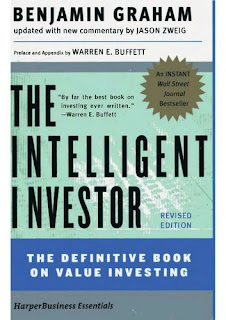Nobody Predicts the Future — And That’s Okay in Investing
In an email to his clients, Andreas Clenow once wrote "Perhaps the most absurd claim in finance is the ability to see the future. To some extent, skill, experience, and hard work can help you tilt probabilities slightly in your favor — but nobody sees the future." He continued: "It’s easy to get pulled into the crystal ball business. It’s tempting to give an answer when the media asks where the S&P will be a year from now. The good news is that you don’t need to predict the future.".
Clenow’s words highlight a crucial truth often buried beneath headlines and expert forecasts: markets are inherently unpredictable. Financial news, analyst opinions, and flashy investment ideas often create the illusion that with enough data, charts, or experience, one can accurately forecast market moves. But in reality, markets are driven by an intricate and ever-evolving web of factors — macroeconomic shifts, political events, human behavior, innovation, and randomness.
Even legendary investors like Howard Marks consistently stress that uncertainty is not a bug in the financial system — it’s a feature. Investment success doesn’t come from eliminating uncertainty or making perfect predictions. It comes from building strategies that remain resilient despite that uncertainty.
The investment world is full of bold claims and quick-rich strategies. But just because someone made a lot of money on a trade doesn’t mean the decision behind it was sound. Bad trades can make money; good trades can lose money. That’s the nature of probabilities and randomness. Therefore, investors need to train themselves to recognize sound principles — not just outcomes. And even those principles have conditions; they don’t work in all situations.
Take, for example, Dollar Cost Averaging (DCA) — a strategy as old as modern investing. It involves regularly investing a fixed amount regardless of market conditions. If a stock drops in price, you buy more shares. If it drops again, you buy even more. Over time, this averages out your cost basis.
It sounds logical and, in some cases, it is. But there’s a trap: blindly applying DCA to a single stock — especially one you don’t understand — can be financially disastrous. If the company’s fundamentals are poor or it’s on the path to bankruptcy, averaging down can lead to total capital loss. You can't recover from zero.
So, is DCA a bad strategy? Not at all — when used wisely.
DCA works well in long-term investing, particularly when applied to well-diversified, low-cost index funds like those that track the S&P 500. Here’s why:
-
Diversification: The S&P 500 includes 500 of the largest companies in the U.S. across multiple sectors. Poor-performing companies are often replaced by stronger ones, and sector-level slumps are balanced out by gains in others.
-
Behavioral Discipline: By investing on a fixed schedule (e.g., monthly), you avoid trying to time the market — a mistake even professionals make. You buy more shares when prices are low, fewer when prices are high. This smooths out volatility and reduces emotional decision-making.
You don’t need a crystal ball to succeed in investing. What you need is a framework grounded in probability, discipline, and sound principles. Don’t chase predictions. Instead, build strategies that acknowledge the uncertainty of markets and are built to withstand it.
That’s how you give yourself an edge — not by knowing the future, but by preparing for it.
Disclaimer
This article is for informational purposes only and should not be considered financial advice. Markets are complex and unpredictable, and various factors beyond valuation metrics can influence future performance. Always conduct your own research or consult with a financial advisor before making investment decisions. Past performance does not guarantee future results.



Comments
Post a Comment